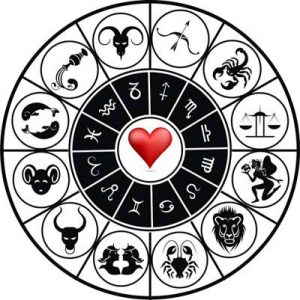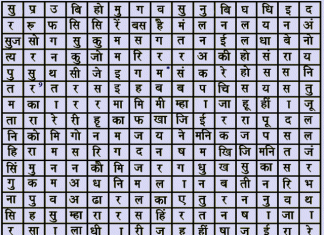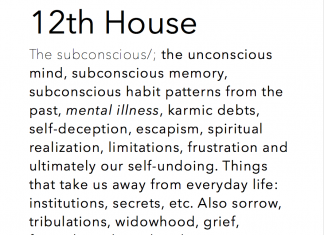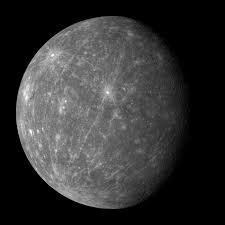Table of Contents
For generations we have used the stars to guide us. Navigators sailing on the vast sea relied on the stars to guide their ships across the waters. Great men used the stars to see how the Earth was aligned in the universe. Still others chose to let their daily lives be determined by the alignment of the stars and planets in the visible night sky. These methods are what we know as astrology and can be used to determine everything from personality to providence. It has found a home in both Eastern and Western contemporary cultures; even the Mayan’s had an astrological calendar that they turned to for guidance.
The History of Astrology
Astrology is more than simply looking up at the stars tonight and trying to figure out what sort of day you will have tomorrow. It is a study of the stars and planets. It is understanding how their patterns and relationships can affect our everyday moments in time. Astrology’s roots date back to humanity’s earliest histories when people determined the seasons by which constellations were present in the night sky and used this to help plant and harvest crops for survival. While not a ‘science’ it is still a useful tool, no matter how much involvement you choose to give it in your life.
Each of the signs is an excellent indicator of personalities and even how those different personalities will mesh and work with one another. Like any generalization, there will be people who just do not seem to fit the archetype, but that does not stop the summaries of the signs from being a useful gauge of someone’s personality. This is especially true when all astrological components are considered.
Astrological Components
Your Zodiac is made up five parts: sign, planet, house, aspect, and element. These five parts combine to create an individualized explanation of traits and personalities. As each overlaps, they exert different influence creating a unique description of you. There are two “wheels;” the wheel of houses and the zodiac wheel. These wheels come together based on each person’s specific time of birth and astrological coordinates at birth. They do not have to “match” in their traits and descriptions. Once these are determined, the other components provide complimentary information. By understanding how each intertwines with the next, you can truly understand what your astrological components say about you.
Sign
The sign is determined by the month and date of your birth, for example those born on the 1st of August are identified as a Leo because of the sign Leo the Lion.
The twelve signs are:
- Aquarius the Water Bearer (Jan 20 – Feb 18)
- Pisces the Fish (Feb 19 – Mar 20)
- Aries the Ram (Mar 21 – Apr 19)
- Taurus the Bull (Apr 20 – May 20)
- Gemini the Twins (May 21 – Jun 20)
- Cancer the Crab (Jun 21 – Jul 22)
- Leo the Lion (Jul 23 to Aug 22)
- Virgo the Virgin (Aug 23 to Sept 22)
- Libra the Scales (Sept 23 to Oct 22)
- Scorpio the Scorpion (Oct 23 to Nov 21)
- Sagittarius the Archer (Nov 22 to Dec 21)
- Capricorn the Sea Goat (Dec 22 to Jan 19)
- There is a thirteenth Zodiac called Ophiuchus the Serpent Bearer which is slightly controversial and not entirely recognized as an official Zodiac Sign.
Those born within a few days of the changing of two signs are said to be born on the cusp and may show strong traits from both signs.
The cusps are:
- Mystery and Imagination: Capricorn and Aquarius (Jan 16 – Jan 22)
- Sensitivity: Aquarius and Pisces (Feb 15 – Feb 21)
- Rebirth: Pisces and Aries (Mar 17 – Mar 23)
- Power: Aries and Taurus (Apr 16 – Apr 22)
- Energy: Taurus and Gemini (May 17 – May 23)
- Magic: Gemini and Cancer (Jun 17 – Jun 23)
- Oscillation: Cancer and Leo (Jul 19 – Jul 25)
- Exposure: Leo and Virgo (Aug 19 – Aug 25)
- Beauty: Virgo and Libra (Sept 19 – Sep 25)
- Drama and Criticism: Libra and Scorpio (Oct 19 – Oct 25)
- Revolution: Scorpio and Sagittarius (Nov 18 – Nov 24)
- Prophecy: Sagittarius and Capricorn (Dec 18 – Dec 24)
Planet
There are a total of ten planets, which include the Sun, the Moon, and Pluto. The ruling planets have an immense impact on the personality of each sign, as well a a daily impact to peoples’ lives.
The planets rule over and influence the signs as follows:
- Sun – Leo: endless energy transforming into powerful presence
- Moon – Cancer: emotional energy impacts need for comfort and security
- Mercury – Gemini: communication influences chatty friendliness
- Mercury – Virgo: communication influences multitasking ability
- Venus – Taurus: romance translates to flirty details
- Venus – Libra: love impacts want for social harmony
- Mars – Aries: intense energy results in tirelessness
- Jupiter – Sagittarius: feeds big dreams helped by luck
- Saturn – Capricorn: discipline results in efficient action
- Uranus – Aquarius: inspires independent innovation
- Neptune – Pisces: increases imagination for all in approach
- Pluto – Scorpio: eye for abstract increases intuition
From a daily standpoint, below is how the planets impact people.
- Sun: Basic personality
- Moon: Mood and emotions
- Mercury: Mind and communication
- Venus: Love and attraction
- Mars: Drive and energy
- Jupiter: Luck, growth, and wisdom
- Saturn: Discipline, fears, and challenges
- Uranus: Change and originality
- Neptune: Dreams and healing
- Pluto: Power and transformation
House
The twelve houses are divided up by the areas of life that are common for everyone.
The first house is that of “self.” It is ruled by Aries and is often associated with first impressions, leadership, and beginnings.
The second house is that of “value.” It is ruled by Taurus and primarily deals with immediate material and physical environments.
The third house is that of “communication.” It is ruled by Gemini and regularly includes community type relationships.
The fourth house is that of “foundation.” Ruled by Cancer, this house is commonly associated with home, security, and parents.
The fifth house is “creativity.” It is ruled by Leo and is associated most with self expression and children.
The sixth house is “work.” Virgo rules this house, and its primary focuses include the quality of service and work.
The seventh house is “relationships.” Naturally ruled by Libra, this includes both professional and personal connections.
The eighth house is “birth and death.” This house is ruled by Scorpio and carries an air of mystery and intrigue.
The ninth house is “philosophy.” Ruled by Sagittarius, this house seeks the higher mind, knowledge, and adventure.
The tenth house is “career.” Capricorn rules this house and its focus is on status, traditions, and achievements.
The eleventh house is “friendships.” It is ruled by Aquarius and celebrates originality.
The twelfth house is the “subconscious.” This house is ruled by Pisces and contains challenges, endings, and solitude.
Aspect
The aspects are defined as the angle at which planets are relative to one another. As viewed from Earth, aspects are the angular distance in degrees and minutes of ecliptic longitude. Aspects are indicative of the timing of life transitions and developmental changes. The more exact the aspect, the stronger the influence. There are five major aspects.
- Conjuction (0 degrees): This is the most powerful aspect. It equally intensifies the effects of each planet involved. Generally it is a positive effect.
- Sextile (60 degrees): This aspect is less significant than the trine or conjuction. However, it still assists in easing communication and promoting harmony. It creates opportunity.
- Square (90 degrees): This aspect is more intense. It typically influences the outer planet. Generally it has a negative, stressful impact.
- Trine (120 degrees): This aspect is more significant than the sextile. It highlights artistic and creative talent.
- Opposition (180 degrees): This aspect is the second most powerful aspect. While it could be motivating, it generally exaggerates situations. This results in a non-unifying, or disharmonious impact.
Element
The final piece of your zodiac is your element. Like the elements of our planet, all are essential to life. They coexist peacefully in order to maintain a balance. Each element greatly influences the personality traits and characteristics of the signs associated with it. There are four elements: air, fire, water, and earth.
- Air (Gemini, Libra, Aquarius): Quick and animated, intellectual and communicative, no emotional depth
- Fire (Aries, Leo, Sagittarius): Spontaneous and impulsive, spirited and energetic, unpredictable
- Water (Cancer, Scorpio, Pisces): Emotional and nurturing, imaginative and intuitive, overly sensitive
- Earth (Taurus, Virgo, Capricorn): Quiet and dependable, genuine and enduring, materialistic
Additionally, each element is affected by certain qualities that further define the sign or person. There are three qualities.
- Cardinal (Aries, Libra, Cancer, Capricorn): Leaders that take initiative to shape
- Fixed (Leo, Aquarius, Scorpio, Taurus): Efficiently organize the pre-existing
- Mutable/Common (Sagittarius, Gemini, Pisces, Virgo): Seek to change and renew
Is Astrology Considered Science or Pseudoscience?
Astrology is as much a ‘science’ of emotion as it is one of metaphysics. It requires you to feel your way through your zodiac, while also requiring the ability to read and understand what a birth chart may tell you. Taking the time to learn your zodiac can be useful in understanding yourself and your interactions with others. It can help you make job decisions because it may help you understand who you are just a little bit better and help you understand what sorts of jobs are right for you. It can help you pick a relationship, in general, and help you identify potential bumps in the relationship road by explaining where you and someone from a different zodiac may have conflicts. No matter how much faith or importance you place on it, astrology can be a fun and useful tool to have in your life.




















